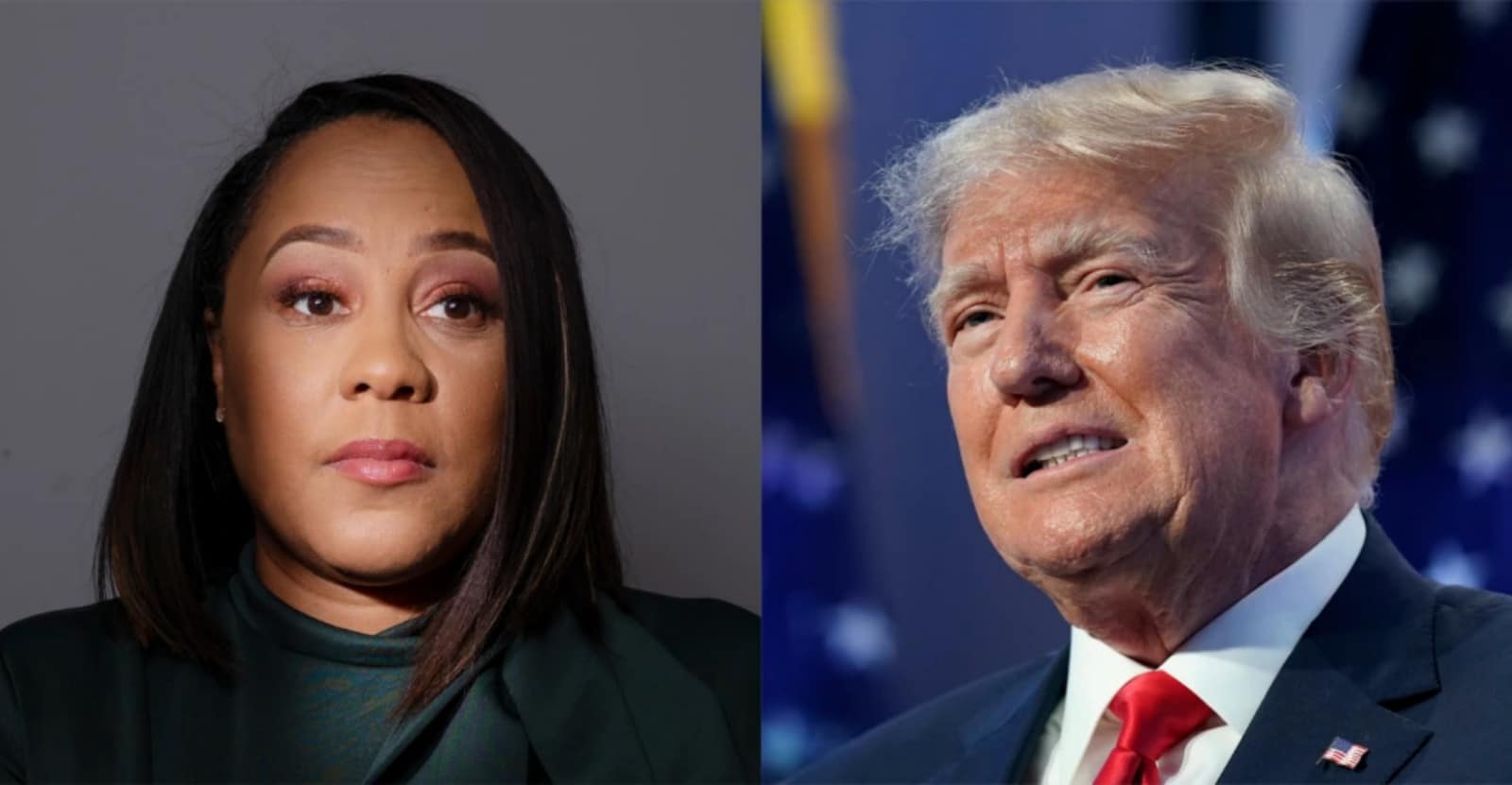OPINION: This article may contain commentary which reflects the author's opinion.
A new analysis of Fulton County, Georgia District Attorney Fani Willis’ sprawling indictments against former President Donald Trump and 18 co-defendants may prove to be too heavy of a lift for her.
In what could be viewed as a sign of needing help to strengthen her cases, prosecutors in Fulton County are offering plea deals to several co-defendants in Trump’s RICO case, which involves his campaign’s attempts to overturn the state’s 2020 presidential election.
The first co-defendant to accept a deal in exchange for his testimony was bail bondsman Scott Hall, who pled guilty to five misdemeanor charges in exchange for a relatively light sentence of five years probation. Last week, Prosecutor Nathan Wade announced his intention to offer attorneys Ken Chesebro and Sidney Powell plea bargains, the Daily Beast reported.
Prosecutors have discussed plea deals with those suspected of involvement in the hacking of Georgia election software at the county level, the harassment of state poll worker Ruby Freeman, and the appointment of fraudulent Trump electors. The number of defendants who had been offered plea bargains was not disclosed by a spokesperson for DA Willis.
Some legal experts are sounding the alarm on Willis’ case.
A. R. Hoffman, an associate editor for the New York Sun, noted that an allegation made by former Trump White House Chief of Staff Mark Meadows, one of the 18 who has been indicted — that “serious constitutional concerns” have been raised over her prosecution of him — “could upend District Attorney Fani Willis’s sprawling racketeering case before it achieves liftoff.”
That led Hoffman to speculate: “Could her prosecution be too big to function?”
He added: “In choosing to indict 19 defendants on 41 charges, Ms. Willis went big in prosecuting efforts to overturn the 2020 presidential election in the Peach Tree State. It is a scale to which she claims to be accustomed — a racketeering trial of public school teachers netted 35 defendants, 12 of whom were tried together. Now, though, court filings show Ms. Willis fretting over a “logistical quagmire” and, Cassandra-like, alerting the presiding state court judge, Scott McAfee, to the “unavoidable burdens on witnesses and victims” should he splinter her sprawling case. The government’s position is that, like Isaiah Berlin’s hedgehog, it can try one large case, but not many smaller ones.”
Meadows is attempting to get his case removed to a federal court, and although a U.S. district court judge struck down that request earlier this month, Meadows’ legal team has filed an appeal, arguing that the allegations filed against him come from actions he engaged in as a federal employee.
The former chief of staff and congressman from North Carolina seeks to convince the 11thc Circuit Court of Appeals that removal is proper because his “case involves the Chief of Staff to the President, not an oil or tobacco company or some other individual.” The higher court is set to hear his arguments via Zoom on Friday, Hoffman noted.
His legal team also argued that Meadows did not go “down to Georgia in his private capacity and got in some kerfuffle.” Rather, he argues that Willis’ indictment is a criminal prosecution “based on actions taken in the White House while discharging his official duties.” Meadows goes on to add that the district court’s rebuff of his case for removal was “completely wrong” and marred by “erroneous pronouncements.”
Willis, meanwhile, argued in a filing that “all the defendants shall be tried together” and that Georgia “is capable of trying large and complex cases.” She added that she “is ready to try all 19 defendants together” while warning that “breaking this case up into multiple lengthy trials would create an enormous strain on the judicial resources of the Fulton County Superior Court.”
The district attorney faces multiple concerns, such as the possibility of Meadows and four other defendants — including Trump — seeking to transfer their cases to federal court. Additionally, Hoffman noted there are efforts to disrupt her trial schedule.
Two of the defendants, attorneys Kenneth Chesebro and Sidney Powell, have already invoked their right to a swift trial. Ms. Willis has now alerted Judge McAfee about the potential outcome of a domino effect, adding the “potential consequence could be a cascade of additional speedy trial demands.”
An attorney for Ray Smith III, who himself is a lawyer accused of wrongfully abetting an alternate elector scheme, has argued that his client’s trial ought to stand alone because Willis’ “case involves too many defendants … too many disparate predicate acts, too many prosecution witnesses, and a complex array of relationships.”
“Trump has fastened on this complexity to push for a more distant trial horizon,” Hoffman wrote. “He argues to Judge McAfee that ‘requiring less than two months preparation time to defend a 98-page indictment, charging 19 defendants, with 41 various charges’ would violate his ‘federal and state constitutional rights to a fair trial and due process of law.'”
Trump’s likely on solid ground here. Hoffman noted further that Judge McAfee has already ruled that Willis’ desire to try all 19 defendants within the next month is “unrealistic.”
